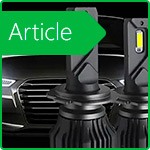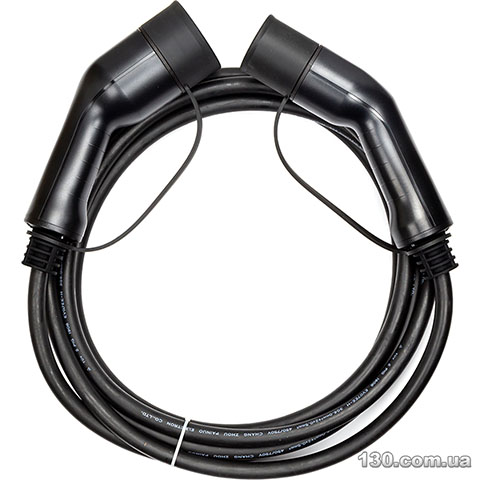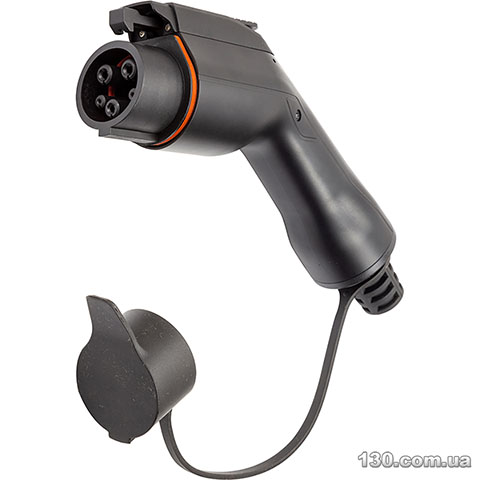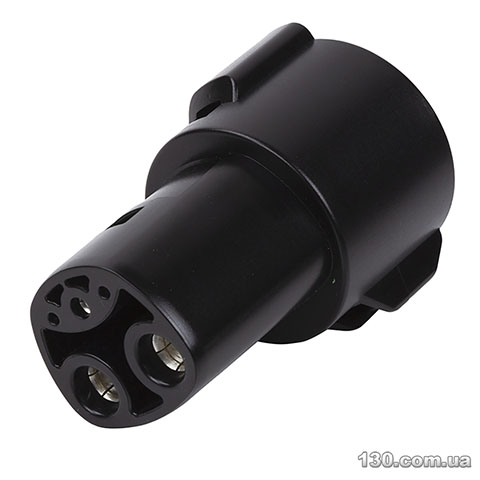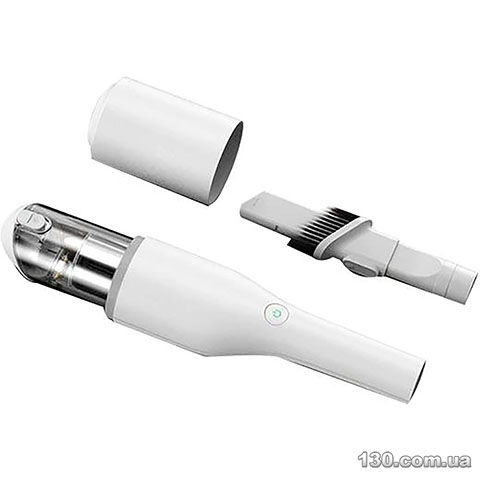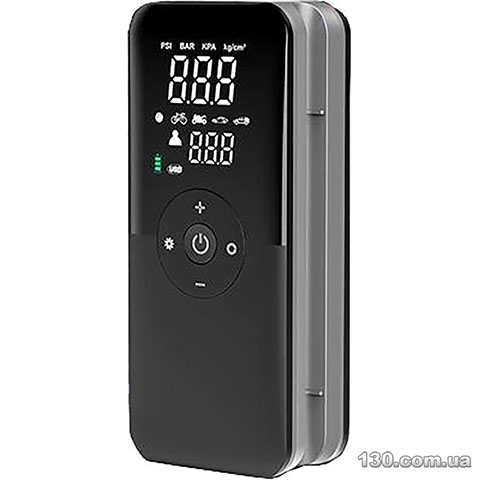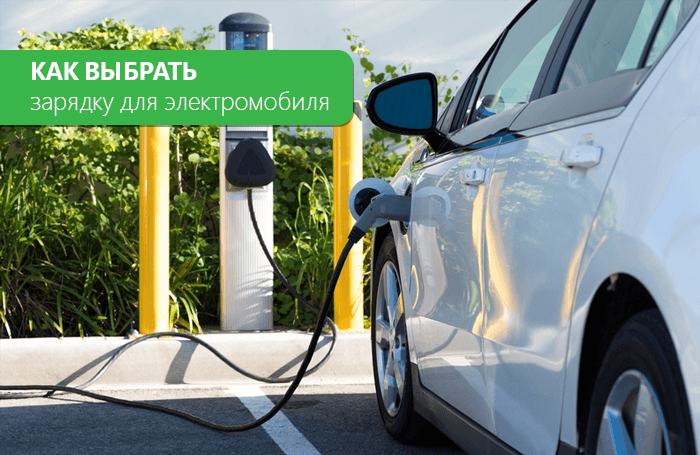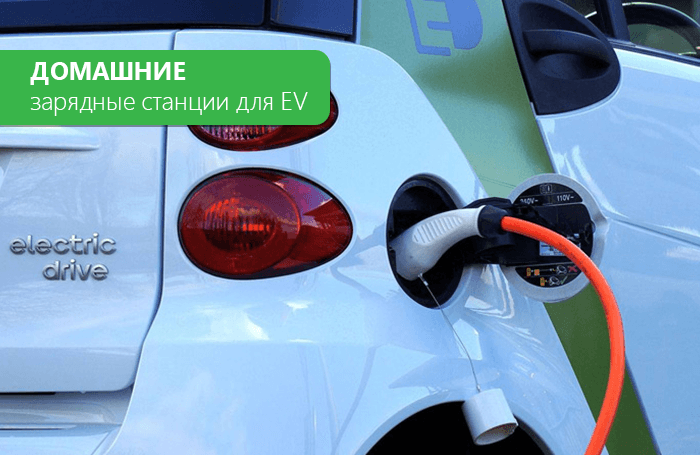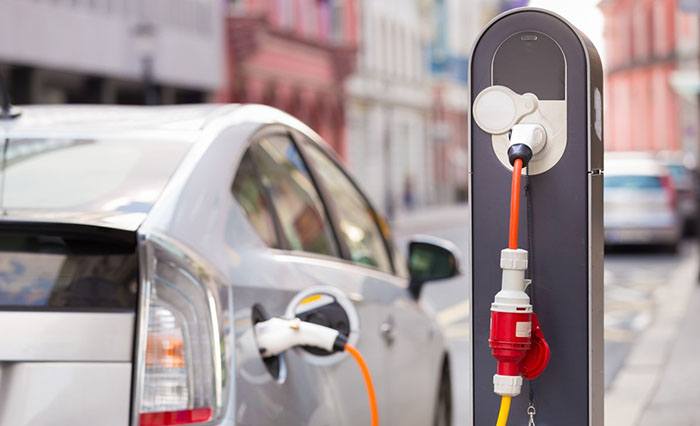Chargers for electric vehicles, EV chargers
Selection of goods by parameters
Hide filters
Found 19 item(s)
Anything you might need
Last reviews about Chargers for electric vehicles
-
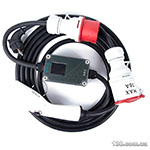 Electric vehicle charger Eveus M32 Pro GBT
Electric vehicle charger Eveus M32 Pro GBTШвидко зв'язались, швидко відправили. Актуальний опис та найнижча ціна в інтернеті. Сміливо можу рекомендувати.
-
 Electric vehicle charger Eveus M32 Pro GBT
Electric vehicle charger Eveus M32 Pro GBTВстановив зарядний пристрій у гаражі. Зручно, що можна налаштовувати силу струму від 7 до 32 А.
-
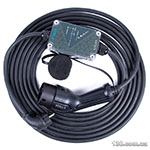 Electric vehicle charger Eveus M16 Light Type2
Electric vehicle charger Eveus M16 Light Type2Приємно, що є якісний продукт від українського виробника. Підтримую вітчизняне, і Eveus M16 Light не розчарував. Рекомендую всім, хто шукає надійний зарядний пристрій.
-
 Electric vehicle charger Eveus M32 Pro GBT
Electric vehicle charger Eveus M32 Pro GBTУстановил зарядное устройство в частном доме. Удобно, что можно регулировать силу тока. Плюсы: регулировка тока, удобный дисплей. Минусы: короткий кабель для некоторых случаев.
-
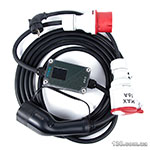 Electric vehicle charger Eveus M32 Pro Type2
Electric vehicle charger Eveus M32 Pro Type2Нещодавно купив електромобіль Hyundai Kona Electric, постало питання про надійну зарядку, друг порадив вибрати модель від Eveus. Замовив на цьому сайті. Користуюсь уже місяць, чудова зарядка. Є із...
-
 Electric vehicle charger Eveus M32 Pro Type2
Electric vehicle charger Eveus M32 Pro Type2Як для власниці електромобіля, зарядний пристрій Eveus M32 Pro Type2 з Wi-Fi, Schuko/CEE став для мене справжнім помічником у повсякденному житті. Його зручність і надійність мене вразили з перших...
Feature articles
|
Electric vehicles have become popular in recent years due to their efficiency and environmental friendliness. However, one of the main challenges facing EV owners is choosing the right charger. The wrong choice can damage the battery and shorten its life. It's important to choose the right charger for your electric vehicle because the wrong one can damage the battery and shorten its life. However, how do you choose the right charger? Here are some criteria to consider when shopping. PowerCharger wattage is an important factor to consider when choosing an electric vehicle charger. The power of a charger determines the amount of electrical energy it can transfer to an electric vehicle's battery per unit of time. As a rule, it is measured in kilowatts (kW). The choice of charger power depends on the model of the electric vehicle and its battery. For example, if you have an electric car with a 40 kWh battery, a 3.3 kW charger will be able to fully charge the battery in about 12 hours, while a 7 kW charger will be able to charge in about 6 hours. It is worth noting that the higher the power of the charger, the faster it can charge the battery. However, you should not choose a charger with an excessively high power rating if it exceeds the required power for your electric vehicle, as this can lead to excessive power consumption and overheating of the battery. Type of charging connectorType1 connectors, also known as SAE J1772 connectors, are used primarily in North America and Japan. They have five pins and can withstand up to 80 A, making them suitable for Level 1 and Level 2 charging. Level 1 charging uses a standard 120-volt household outlet, while Level 2 charging requires a 240-volt charging station. Type 1 outlets are compatible with most electric vehicles manufactured in North America and Japan. Type 2 sockets, also known as Mennekes sockets, are widely used in Europe and have seven pins. They are designed for currents up to 63 A and are suitable for Level 2 charging. Type 2 connectors offer a higher level of safety than Type 1 connectors due to the additional contacts that provide communication between the vehicle and the charging station. This allows the charging station to adjust the charging speed depending on the temperature and battery level. GB/T sockets are used primarily in China and have seven contacts. They are rated for a current of up to 400 A and are suitable for both AC and DC charging. GB/T sockets are compatible with Type1 and Type2 sockets, which allows you to charge electric vehicles with different types of sockets seamlessly. Before purchasing a charger, it is important to check which type of charging connector is suitable for your electric vehicle model. If you use the wrong type of connector, you may damage the electrical network, the charger, and the battery of your electric vehicle. Charging cableThe charging cable is an important component of the portable charger for electric vehicles. It connects the charger to the electric vehicle and determines the charging speed. The charging cable should be strong, flexible, and long enough to reach the charging port of your electric vehicle. Most portable electric vehicle chargers come with a Type2 charging cable, which is compatible with most European electric vehicles. AmperageThe current rating of a portable electric vehicle charger determines the charging speed. The higher the current rating, the faster the charging speed. Most portable chargers for electric vehicles have a standard current rating of 16A or 32A. Charging speedThe charging speed of an electric vehicle can have a significant impact on its efficiency. This indicator depends on many factors, such as the charger's power, current strength, and type of charging connector. For example, a 7 kW charger can charge an electric vehicle's battery in 6-8 hours, while more powerful devices, such as 22 kW or 50 kW, can charge an electric vehicle in a few hours or even a few tens of minutes. It is important to remember that the charging speed may depend on the state of the electric vehicle's battery. For example, if the battery is almost full, the charging speed may be limited to prevent overloading the battery. Safety featuresWhen choosing a charger, you should pay attention to the availability of appropriate safety features to help avoid accidents and fires. One of the most important safety features is overload and short circuit protection. The charger should have built-in overload protection that automatically shuts off charging if the power exceeds the maximum allowable level. You should also look for short-circuit protection to prevent damage to the battery pack. Some chargers have additional safety features that allow you to remotely control the charging and turn it off if necessary. For example, some devices may have an automatic shutdown function when charging is complete, or they may shut down in case of overheating. Additional features such as charging level indication, undervoltage protection, and reverse current protection can also be useful. Brand and qualityChoosing a charger from a well-known manufacturer can ensure the quality and durability of the device. You should also pay attention to the warranty period, which may vary from manufacturer to manufacturer. Choosing the right charger for your electric vehicle is an important step that can affect the charging speed and efficiency, safety, and quality of the device. By considering factors such as the type of charging connector, charging speed, safety features, brand, and quality, you can find the perfect charger to meet your needs and help you enjoy a smooth electric car ride. You can choose and buy a charger for an electric car on 130.com.ua with delivery across Ukraine. Chargers are suitable for most popular electric cars in Ukraine, such as: Tesla Model 3, Tesla Model S, Tesla Model X, Nissan Leaf, BMW i3, Volkswagen ID.3, Volkswagen ID.6, Hyundai Kona Electric, Renault Zoe , Audi e-tron, Jaguar I-PACE, Mercedes-Benz EQC, Kia Niro EV, Mini Cooper SE, Porsche Taycan, Polestar 2, Ford Mustang Mach-E, Skoda Enyaq iV, Honda e, Chevrolet Bolt EV, Mazda MX- 30, Fiat 500e, Smart EQ ForTwo, DS 3 Crossback E-Tense, Peugeot e-208, Citroen e-C4, Opel Corsa-e, Seat Mii Electric, Volkswagen ID.4, Audi Q4 e-tron, BMW iX3, Volvo XC40 Recharge, Lexus UX 300e, Mitsubishi Outlander PHEV, Fisker Ocean, Lucid Air, Rivian R1T, Faraday Future FF91, Bollinger B1, Karma Revero, Canoo, Lordstown Endurance, Nikola Badger, Alpha Wolf, Byton M-Byte, Nio ES8, Xpeng P7, WM Motor EX5, GAC Aion S, Leapmotor S01, Hozon Auto Neta N01. |
Chargers for electric vehicles, EV chargers
Frequently Asked Questions
Can I charge my electric car at home?
Yes, charging an electric car at home is the most efficient and convenient way to charge it. Simply plug the dedicated charging point into the mains when the car is not in use and the technology will automatically manage the charging process.
Can I leave my electric car plugged in overnight?
Yes, it's safe. Simply leave the vehicle plugged into the charging point and the device will automatically adjust the charge to fill the required energy and then automatically disconnect.
Can I charge my electric car in the rain?
Yes, the charging stations and connectors are designed with water and moisture protection, so charging an electric car in the rain is perfectly safe.
What are fast and slow charging?
"Fast" chargers operate on direct current (DC) and have a capacity of more than 22 kW, allowing the vehicle to be charged quickly over a considerable distance. "Slow" chargers, based on alternating current (AC), are often used in areas where the vehicle is parked for long periods of time.
What are the classes of charging stations?
Mode 1: The least powerful stations for use with the household grid.
Mode 2: Standard AC charging stations suitable for most electric vehicles.
Mode 3: The most powerful AC charging stations that support different types of connectors.
Mode 4: High-speed DC charging stations for fast battery charge recovery.
What connectors are used to charge electric cars?
There are several connector standards worldwide: Type 1 (J1772), Type 2 (Mennekes), GB/T, CCS (Combined Charging System), CHAdeMO and Tesla Supercharger. The choice of a specific connector depends on the vehicle manufacturer and its region.
What is Type 1?
Type 1 (J1772) - Single phase charging connector, common in the US and Asia, used with Mode 2 and Mode 3 chargers.
What is Type 2?
Type 2 (Mennekes) - seven-pin connector, standard for Europe, compatible with Mode 2 and Mode 3 chargers.
What is GB/T?
GB/T is a seven-pin connector, the standard for China.
What is CHAdeMO?
CHAdeMO is a DC fast charging connector common in Japanese electric vehicles, compatible with Mode 4 chargers.
Best of chargers for electric vehicles
Electric vehicle charger Eveus M32 Pro Type2 — 12 498 UAH
Electric vehicle charger Eveus M32 Pro Type1 — 12 498 UAH
Electric vehicle charger Eveus M32 Pro GBT — 12 498 UAH
Electric vehicle charger Eveus M16 Pro Type2 — 10 298 UAH
Electric vehicle charger Eveus M16 Light Type2 — 7 649 UAH
Which chargers for electric vehicles belong to the premium segment?
Electric vehicle charger Green Cell Habu EV 11 kW Type 2 (EVGC01) — 34 815 UAH
Charging station for electric car HiSmart EV200092 — 32 999 UAH
Charging station for electric car HiSmart EV200085 — 32 999 UAH
Charging station for electric car Konner&Sohnen KS X32/3 — 29 999 UAH
Charging station for electric car Green Cell Wallbox EV 22 kW Type 2 (EV14) — 27 628 UAH
Which chargers for electric vehicles are the cheapest?
Electric vehicle charger Eveus M16 Light GBT — 6 838 UAH
Electric vehicle charger HiSmart EV200689 — 7 155 UAH
Electric vehicle charger Eveus M16 Light Type2 — 7 649 UAH
Electric vehicle charger Eveus M16 Light Type1 — 7 649 UAH
Electric vehicle charger HiSmart EV200696 — 7 950 UAH
Which chargers for electric vehicles are the most discounted?
Electric vehicle charger HiSmart EV200689 — 7 155 UAH
Electric vehicle charger HiSmart EV200696 — 7 950 UAH
Electric vehicle charger Duosida EV200276 — 10 335 UAH
Electric vehicle charger Duosida EV200269 — 11 130 UAH
Electric vehicle charger Duosida EV200320 — 24 750 UAH
What are the newest chargers for electric vehicles 2025?
Electric vehicle charger Green Cell Habu EV 11 kW Type 2 (EVGC01) — 34 815 UAH
Charging station for electric car Green Cell Wallbox EV 22 kW Type 2 (EV14) — 27 628 UAH
Electric vehicle charger Green Cell PowerCable EV 3,6 kW Type 2 (EV16) — 13 360 UAH
Electric vehicle charger Green Cell Snap EV 11 kW Type 2 (EVKABGC04) — 9 390 UAH
Electric vehicle charger Green Cell Snap EV 22 kW Type 2 (EVKABGC01) — 11 412 UAH
What are the prices of chargers for electric vehicles?
Minimum price - 6 838 UAH
Average price - 15 130 UAH
Maximum price - 34 815 UAH










